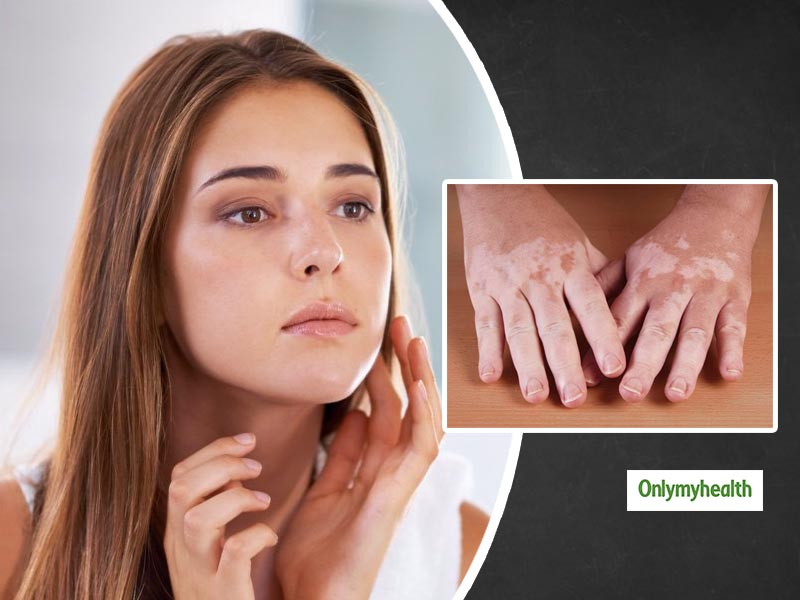
Types Of Skin Pigmentation On The Face: Almost everybody has heard about Melanin, and nearly all sun protection products make a mention of it in their sales pitch. An essential task of melanin is to protect the skin by absorbing the harmful UV rays. If everything goes, the perfect way melanin is supposed to be evenly distributed along the skin, but it does not happen that way because of several known and unknown reasons. The result? Blotch, discoloured skin or spots on the skin or a darker or lighter shade of skin than usual. This is called skin pigmentation. There are mainly three types of skin pigmentation:
Table of Content:-
- Hypopigmentation: When the melanin production is low, it leads to conditions such as albinism.
- Depigmentation: Leading to conditions of now known aetiology such a Vitiligo.
- Hyperpigmentation: This is caused by over synthesis of melanin.
Other reasons for hyperpigmentation are medications such as the chemotherapy drug, melasma, pregnancy hormones and endocrine diseases such as Addison’s disease, and genetics. There is also post-inflammatory hyperpigmentation that is caused because of acne or injuries that have not had the time to heal correctly. Hyperpigmentation goes by various names, for example, the brown spots that appear because of sun exposure begin with freckles and mature into sun spots or age spots, or the violin neck on violin players where the violin touches the throat. The darkness between the thigs is also a kind of hyperpigmentation! Hyperpigmentation can be avoided and treated by suppressing the triggers and using active treatment therapy.
Also Read: #FridaysWithParas: Get Pink Lips With These Simple Remedies
Your dermatologist will be the right person to determine which type of treatment will be suitable for your skin:
- Choosing the right SPF: Choose a broad-spectrum sunscreen with zinc oxide in it as an active ingredient and reapply the sunscreen every two hours. If the cause of the spots is melasma, then you want to use a mineral sunscreen with iron oxide init. For a real sun-sensitive skin, your dermatologist might recommend SPF infused clothing.
- Lightening creams: Over the counter creams containing vitamin A (retinol), azelaic acid, niacinamide, kojic acid, vitamin C, arbutin, AHAs, e.g. glycolic acid, liquorice root extract and mulberry extract, and Vitamin B3 can help lighten the skin. These creams are active on most skin types.
- Chemical peels: Although peels are nowadays available as a do it yourself option, we recommend getting a professional peel by a qualified and experienced cosmetic dermatologist. Chemical peels contain glycolic acid, lactic acid, and retinol, and they work by removing the top layer of the epidermis. Chemical peels are best done from spring to winter when the intensity of the sun is low. Chemical peels work best for fairer skin tones.

- Laser skin resurfacing: Both ablative and non-ablative lasers can be used to reduce the discolouration of the skin, but their effectiveness varies with skin type.
Also Read: #FridaysWithParas: Winter Is Coming, Get Creative With DIY Moisturisers
There are some simple points that you can incorporate in your daily routine to prevent and curb pigmentation such as:
- Aloe Vera can be your friend. Dab some fresh aloe vera on the spots before going to bed and wash it in the morning.
- Make a mix of an equal amount of apple cider vinegar and water and apply on the dark patches twice daily.
- Wear a broad-brimmed hat if you have to step out in the sun between 12 pm to 4 pm.
- Masoor daal face pack: Face packs made of red lentils can help reduce hyperpigmentation. Red lentils are rich in antioxidants and even out the skin tone.
- Tomato paste: A proven remedy of skin lightening, tomato paste mixed with olive oil can help reduce the pigmentation drastically.
(Medically reviewed by Dr Rinky Kapoor, Consultant Dermatologist, Cosmetic Dermatologist & Dermato-Surgeon, The Esthetic Clinics)
Read more articles on Skincare
How we keep this article up to date:
We work with experts and keep a close eye on the latest in health and wellness. Whenever there is a new research or helpful information, we update our articles with accurate and useful advice.
Current Version